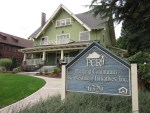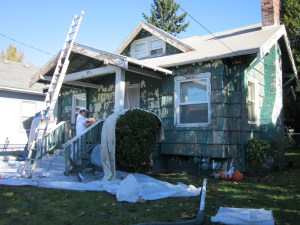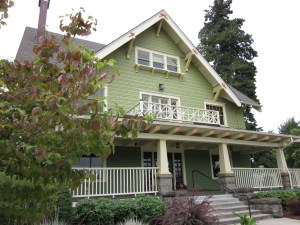
PCRI Offices on Martin Luther King Blvd
Maxine Fitzpatrick, Executive Director of Portland Community Reinvestment Initiatives, and at least two members of the PCRI Board plan to give a presentation to KNA at the November 10th meeting. PCRI wanted to present last month but there was not enough time to notify any neighbors who would be intereted in coming.
Ms. Fitzpatrick was interviewed by KNA communications volunteer Trace Salmon in the wake of a brawl in front of one of their housing complexes. This incident, which resulted in gunfire, brought to the forefront concerns about how invested PCRI is in a common vision of a safe and livable neighborhood. In the interview, Ms. Fitzpatrick decried the tactics of neighbors who complain about such incidents by sending emails to PCRI management and Board of Directors instead of getting to know their neighbors and dealing with issues on a personal level.
With the scrutiny on PCRI from this incident, nagging questions about their property maintenance and rental strategy were also brought to light. A number of PCRI properties have lingered vacant for long periods and maintenance items have gone neglected. Since the story in our blog PCRI staff have been cleaning graffiti from their property and assessing maintenance needs.
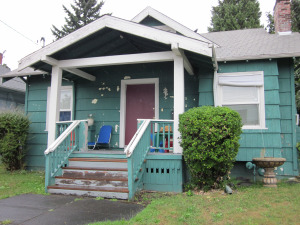
A PCRI Property in King
At the meeting, it should become clear whether PCRI will act in good faith to meet its mission of providing housing to the large numbers of Portlanders who cannot afford it while respecting the desire of all residents, PCRI residents included, to live in a safe and crime-free neighborhood. After concerns were sent to the PCRI Board of Directors following the gunfire, the board chair responded that he was looking into what course of action PCRI should take. Maxine Fitzpatrick said that the incident in question seemed to her to be an isolated one that didn’t require PCRI action. Whether or not there is any action PCRI could take, the response thus far has been less than reassuring.
While Ms. Fitzpatrick is accutely attuned to history of NE Portland and the systematic, discriminatory disempowerment of African Americans and other racial minorities who were denied access to capital and mortgage loans for decades, she dismisses people who have recently come to the neighborhood who have higher standards than to be tolerant of gunfire. It leaves one with the impression that Ms. Fitzpatrick thinks PCRI’s housing mission is in conflict with middle-class values. If so, affordable housing will only continue to be further stigmatized in the court of public opinion and PCRI’s mission will continue to become more difficult to meet.
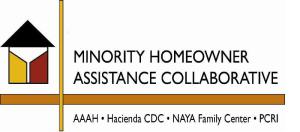 Portland Community Reinvestment Initiatives (PCRI), in conjunction with our Minority Homeowner Assistance Collaborative (MHAC) partners, is hosting a forum Tuesday, March 15, 2011 from 6:00 – 8:00 p.m. to address the challenges African-American seniors are facing to maintain homeownership.
Portland Community Reinvestment Initiatives (PCRI), in conjunction with our Minority Homeowner Assistance Collaborative (MHAC) partners, is hosting a forum Tuesday, March 15, 2011 from 6:00 – 8:00 p.m. to address the challenges African-American seniors are facing to maintain homeownership.
